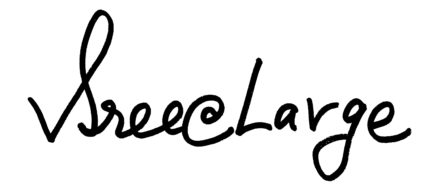Rick has been my guide for a long time. Rick Steves that is.
We started following his brand of travel in the 1990s. PBS introduced him to us. We fell in love with the weekend shows. The first book my husband and I bought was Europe through the back door. Our first trip to Europe was in August 1997. We took a flight to Frankfurt – rented an Opel Astra and drove for 21 days – through Bavaria, Munich, Paris, Nice, Antibes, Arles, and ended up in a pine covered rustic little place called Hohfluh in Hasliberg, Switzerland.
The world was less flat then – as in Tom Friedman’s context, but full of trust and generosity of mind.
Europe was a life-altering experience for me. I felt like I had stepped into a magic kingdom. I stood frozen on Paris pavements looking up at pediments of incredible beauty. I touched water flowing out of an ornate fountain in Place de la République in Arles, a 4th century Roman obelisk housed the fountain. We did a lot more, with the help of Rick’s guidebook. We had no apps and no GPS. But we managed marvelously. Europe revealed itself to us in all its magnificence -in palaces and lakes, castles and museums, cafes and architecture, arts and culture, people and piazzas.
Rick was an invisible travel companion. And I felt that our travel values were aligned in many ways. We traveled to see, to experience, to admire all that we wouldn’t in every day life. Palaces of enormous beauty, ruins that resonate history, lakes that hold secrets, paintings that make you double over in awe. Travel is as Rick says in his books – intensified living. Travel to me meant exploration, learning, communion, exhilartion and an opportunity to stretch my horizon.
I love Rick’s brand of traveling. Over the years, we watched his familiar figure in khaki pants and light-colored shirts on PBS and heard his uncomplicated and clear narrations. Everywhere we go – we meet travelers clutching his books – in Prague, in Salzburg, in Munich (sometimes way too many). Many of them travel because that is the goal and that is the love.
On one of his appearances on PBS for a pledge drive last year, he spoke of how he declined the offer to receive sponsorship from a particular company (A credit card company perhaps) since he would then have to advocate the use of their product. He didn’t want to promote anything that was not in the spirit of unbiased and unmitigated travel.
I admire that sentiment. In my mind, there was something pure about traveling – traveling was above trade, above profiteering. And that of course is my slanted view. But I liked that view. It made me feel like an adventurer every time I stood at the crossroads of a city I had never seen or stepped into a dark and lonely church with sunlight strips bending in through the stained glass windows.
This summer we were in Europe – my husband, I and my daughter who is a college senior. We were doing one of Rick’s walking tours in Vienna, pausing and reading out some of the descriptions at stopping points. Somewhere close to Kärntner Strasse, my daughter made a comment – in a reflective and non-judgmental manner. She had a distance from Ricke Steves, which I did not have.
“He really doesn’t think much of shopping, hah!”
It got me thinking. The world has changed greatly since 1997. Not just politically, but economically as well. Consumerism is a good word and tourism is a huge commercial industry. So, why do people like me stick to this notion of shopping as something not integral, almost antithetical to traveling?
Munich looked different this time. We walked the pedestrian streets close to Marienplatz. The streets were aglow with brand name stores – people rushing in and out of Gucci and Zara.
While eating weinerschnitzel in a café in the Graben area in Vienna, I looked around. It was a lively pedestrian zone, also lined with glittering stores. We sat outdoors, next to a monument erected in 1679, commemorating the end of a plague epidemic that killed thousands in Vienna – a tall column rising up in whorls of gilded angels, cherubs and the Holy Trinity.

Holy Trinity Plague column
I watched the people, heard the laughter and tried to analyze my aversion towards the shops that surrounded us. I knew I was being judgmental and a hard-ass. My definition of travel is limited, maybe passé. After all, the world is now all about financialization. The decimal points on the balance sheets checkmate pretty much everything else.
“We are all bankers now.” That is how one of the chapters in Rana Foroohar’s much talked about book “Makers and Takers: The Rise of Finance and the Fall of American Business (2016)” starts. Finance is the master now and not a servant to a larger economy or production of goods and services.
Sitting in the beautiful plaza on a warm summer evening, I couldn’t help brooding about the realities that are self-evident. Rick’s brand of traveling is a mind-set, a belief compass, it would be awful for that brand to slip away, to lose ground to ‘financial engineering.’
Maybe, I was overthinking. There are many of us still in circulation who find eating salami and bread sitting on a stone bench next to the Rhine thrilling.
Thank you Rick!
